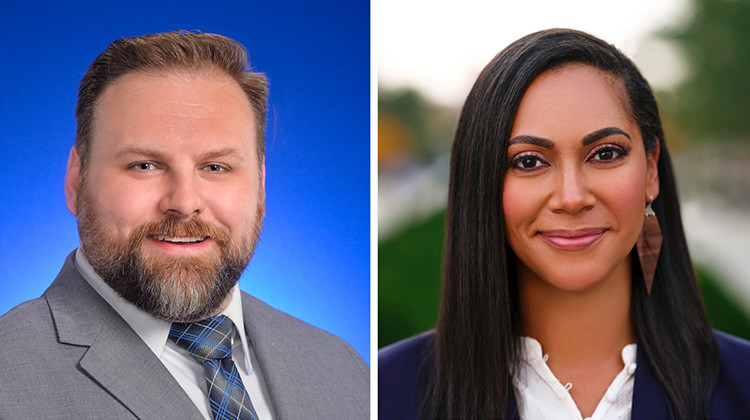
Republican Evan Shearin and Democrat Andrea Hunley are running for the seat in Indiana Senate District 46.
provided photosTwo candidates are running for Indiana Senate District 46: Democratic candidate Andrea Hunley and Republican candidate Evan Shearin.
Indiana District 46 State Senate was created last year, through the state’s redistricting process. The race for the Democratic nomination for the Indianapolis seat brought out five candidates in the May primaries, and Democrat Andrea Hunley won that election, with more than 40 percent of the vote. She is a former public school teacher and principal. Evan Shearin is on the ticket for the Republican party. He is a buisiness consultant and served in the U.S. Navy.
WFYI sent each of the candidates five questions to help voters learn more ahead of early voting and Election Day, Nov. 8. Their answers are presented in alphabetical order.
Editor’s note: Responses to WFYI candidate survey questions are edited for AP Style and clarity. This format does not allow for rebuttal; surveys do not include any statements candidates made about each other that could not be independently verified as fact. WFYI did not include numerical facts until they could be independently verified.
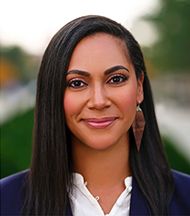
Andrea Hunley
What do you see as the most pressing issue lawmakers will address in the upcoming legislative session?
This is a budget year, which means that the most pressing issue this session will be how we allocate our abundance of financial resources to support hardworking Hoosier families. With less of a fight for financial freedom, our families can focus on education, new job opportunities, and their health and safety.
We must fully fund public education, expand pre-K access, and get serious about reducing health disparities. We must also ensure that we equitably fund infrastructure projects and ensure that we support communities that have been intentionally disenfranchised and disconnected in the past to ensure that they will be reconnected and set up for long-term growth and investment.
Indiana’s schools are facing numerous challenges including teacher shortages, racial achievement gaps, reading ability and declining college-going rate. What do you see as the state’s top education issues, and how would you address them?
We must equitably fund our public schools so that academic outcomes cannot be predicted by race or zip code. With nearly two decades of experience serving our public schools, I have had the opportunity to think about this often, which is one of the reasons I am running for office. For the sake of space and time, I am going to limit myself to discussing two current challenges.
-
Mental Health Services.
The problem: Student mental health needs are not being met by the current structures and recommended ratios we have in place. Some schools have social workers while others have guidance counselors. Some schools have partnerships with agencies, but most agencies can only accept Medicaid. Our children are in crisis, and teachers cannot solve their needs alone.
One solution: Equitably and adequately resource all schools with licensed mental health service providers to provide both acute and ongoing care.
-
Teacher Recruitment and Retention.
The problem: Teacher recruitment and retention are core challenges, the effects of which ripple out and exacerbate all other issues in our school buildings. We need high quality, flexible, driven educators who are committed to our communities and classrooms. Yet, our turnover rate is high and currently in Indiana there are over 700 vacant teaching positions.
One solution: Increase teacher pay and consider alternatives to our current teacher licensing process.
Indiana lacks affordable housing inventory and communities across the state deal with landlords who shrug off local health and safety violations. How would you address the state’s lack of affordable housing and laws to protect tenants from bad-acting landlords?
Predatory buyers and landlords cannot be allowed to take advantage of our community. The folks who are most harmed by the lack of affordable housing inventory are first time homebuyers, recent immigrants, and retirees on fixed incomes. We need a systematic approach to ensuring we define what affordable housing is, require developers to add to or preserve a fixed percentage of affordable housing stock, and limit the bulk purchasing of homes by out of state investment companies.
Landlords must be held accountable for the conditions of their properties. Renters should not have to live without electricity, running water and mold because the landlord isn’t doing their job. Our offices of public health and safety need mechanisms by which to enforce correction of health and safety violations – and this is where the legislature can come in.
In recent legislative sessions, state lawmakers have tried to regulate local decision-making; two examples are wind turbine regulation and bail reform. How would you approach issues of local versus state control as a lawmaker?
Indiana is made up of 92 diverse counties, each with unique challenges and opportunities. We must take all of these perspectives into account when legislating and consider how each municipality would be impacted when making decisions. When we live up to our most democratic ideals, we have a representative democracy, whereby elected officials listen to their constituents to vote in the best interest of their communities.
There are times when we must be consistent as a state so that we do not create a patchwork of legislation that can create inconsistent business or environmental regulations, for example. And, there are times where we must protect home rule and allow the local governments in our cities and towns to function. At the end of the day, what we need is a collaborative and cooperative partnership between our local and state government. We can get there.
Indiana lawmakers voted to ban most abortions, with narrow exceptions for rape, incest and certain serious medical complications and emergencies. Would you support the legislature revisiting Indiana’s abortion law? What would you change?
I oppose the restrictions Indiana Republicans have put on abortions. These restrictions – euphemistically called exceptions – shame, endanger, and punish women and pregnant people. These restrictions recklessly take personal medical decisions in complicated situations out of the hands of families and doctors and put them into the hands of politicians and law enforcement. This is not okay. This is not an Indiana for my kids, or for your kids, which is why I will fight to repeal Indiana’s abortion ban.

Evan Shearin
What do you see as the most pressing issue lawmakers will address in the upcoming legislative session?
As we enter what promises to be a long and deep recession, I believe that ensuring that all Hoosiers, especially low-income families, are protected from the worst. We must ensure that housing and other assistance programs are funded fully, and we must continue to make Indiana a competitive state for investment, to gain and retain valuable jobs. We must fully fund programs that help Hoosiers pay their bills through the winter, support trustees offices and other assistance organizations, and do what we can to help small business owners weather the coming recession.
A good first step would be cutting the gas tax. I was opposed to the gas tax increase in 2017, and I am even more in favor of cutting the gas tax now that much of the white collar workforce has converted to remote work, and the gas tax is being borne primarily by the blue collar and working class, who are still required to be physically present at work.
Indiana’s schools are facing numerous challenges including teacher shortages, racial achievement gaps, reading ability and declining college-going rate. What do you see as the state’s top education issues, and how would you address them?
As the son of a public school teacher, I value education very highly, and believe that it is the closest thing we have to a panacea for our state's challenges. All too often, it seems that the state legislature and even local governments are micromanaging schools, and even individual teachers, and superseding the parents and teachers who should be making many of these decisions.
I would like to see the state define a broad curriculum, focused on life skills and workforce preparation, and then allow teachers to teach. I would also like to see education promoted more often to young people as a desirable and viable career path, to help ensure a pipeline of qualified, motivated teachers. We also have to be willing to look to other states, and even other countries, and adopt good ideas and methodologies when we find them.
Indiana lacks affordable housing inventory and communities across the state deal with landlords who shrug off local health and safety violations. How would you address the state’s lack of affordable housing and laws to protect tenants from bad-acting landlords?
As a former Section 8 Caseworker and Housing grants manager, I've witnessed this firsthand. First, I would like to push back on out of state investment firms and hedge funds who are buying up vacant houses, inflating prices out of the reach of working Hoosiers. I would also like to step up funding for enforcement of housing regulations, as well as potentially increasing penalties on negligent landlords and property owners in order to motivate them to be more diligent in their responsibilities.
In recent legislative sessions, state lawmakers have tried to regulate local decision-making; two examples are wind turbine regulation and bail reform. How would you approach issues of local versus state control as a lawmaker?
I believe that the state legislature has overreached several times in restricting the abilities of local communities to govern themselves, such as the light-rail ban. While the state government certainly has a role in setting policy, and there is a responsibility on the state to address issues which can not or are not being addressed locally, many recent measures preventing local governments from governing are inappropriate. I would seek to repeal these efforts, and would resist similar efforts in the future.
Indiana lawmakers voted to ban most abortions, with narrow exceptions for rape, incest and certain serious medical complications and emergencies. Would you support the legislature revisiting Indiana’s abortion law? What would you change?
I support the current abortion ban, but I would like to see enforcement focused on the providers much more than the individuals seeking abortions.
How to vote in Indiana:
Vote by Mail Application Deadline: Oct. 27, 2022 at 11:59 p.m. (local prevailing time).
Election Day is Nov. 8, and you can find your polling place at the Indiana Voters Portal.
 DONATE
DONATE



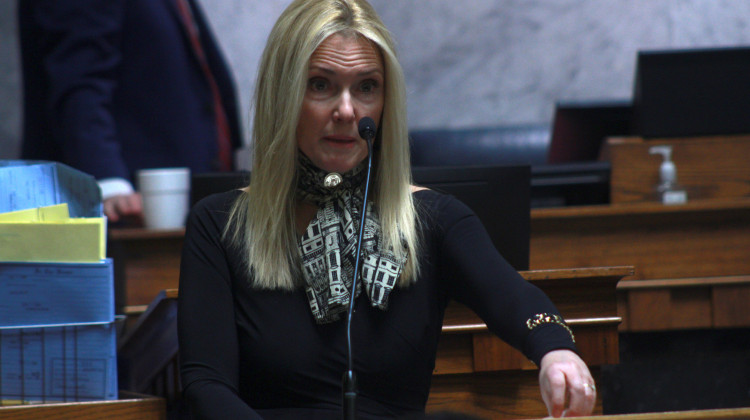
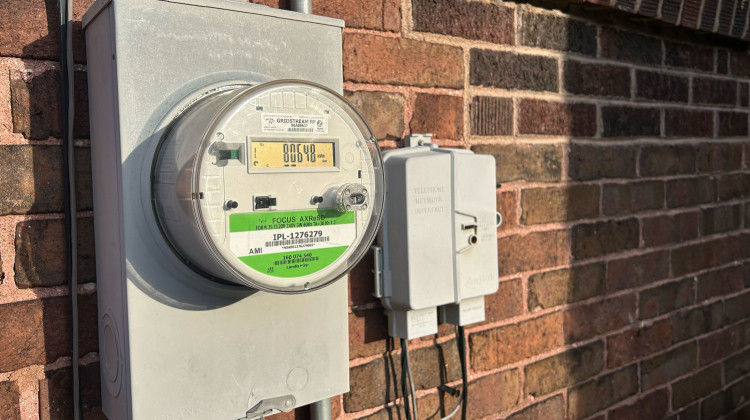
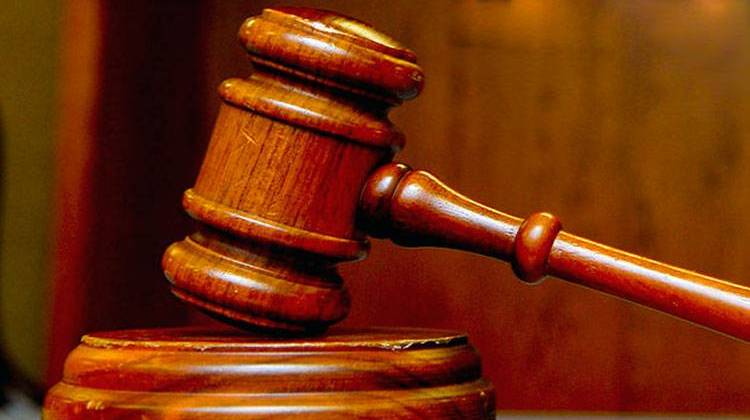

 Support WFYI. We can't do it without you.
Support WFYI. We can't do it without you.